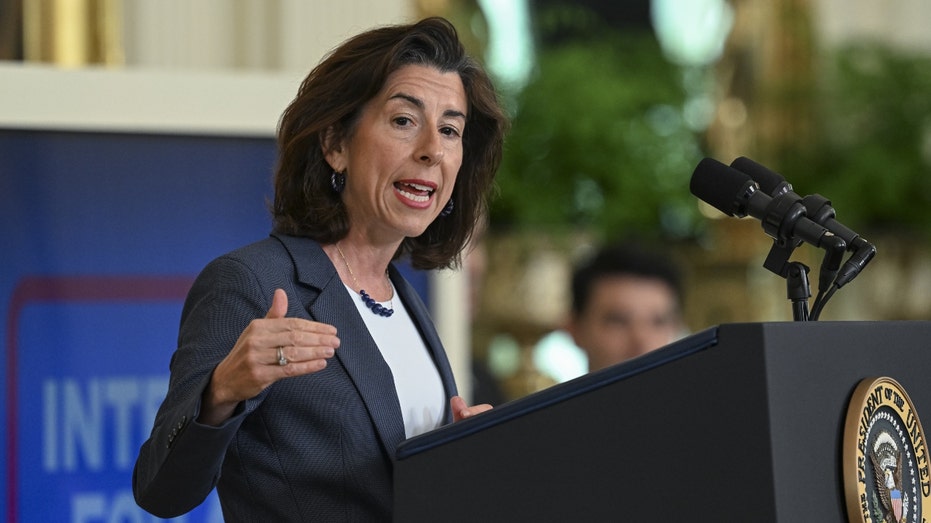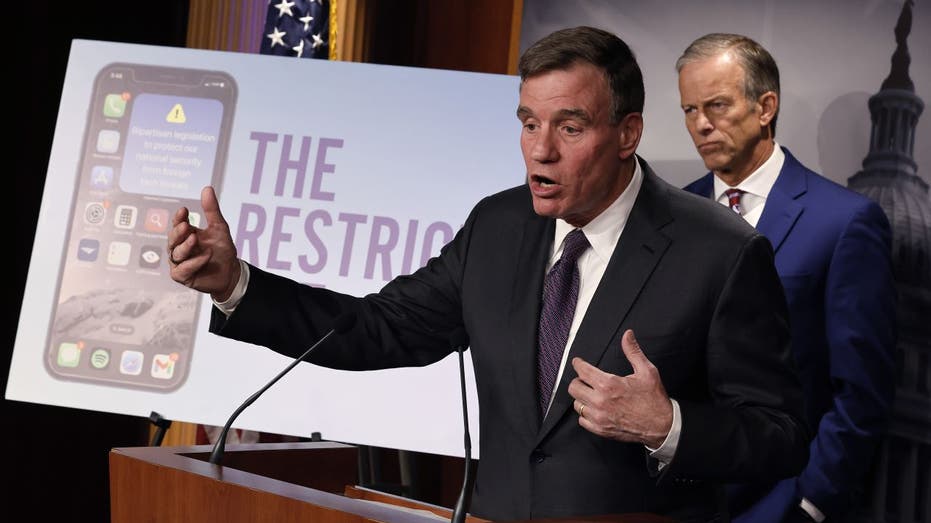Commerce secretary backs bills cracking down on TikTok
TikTok could be prevented from doing business in US under RESTRICT Act
TikTok's national security implications are grave: Frederick
Heritage Foundation Tech Policy Center Director Kara Frederick discusses Montana's push to become the first state to ban TikTok for everyone on "Varney & Co."
Commerce Secretary Gina Raimondo told senators on Wednesday that she supports Congress giving her agency new tools to counter apps owned by foreign companies in adversarial countries.
Raimondo said in testimony before the Senate Commerce Committee that she supports a bipartisan bill known as the RESTRICT Act, introduced by Sens. Mark Warner, D-Va., and John Thune, R-S.D., as well as legislation that Sen. Maria Cantwell, D-Wash., is drafting called the Guard Act.
"Certainly TikTok poses national security risks to be clear, but we need a comprehensive plan," Raimondo said at the hearing. She said that her agency needs Congress to give it tools that allow Commerce "to have a comprehensive approach to these connected apps that pose national security risks."
"I am often asked should we outlaw TikTok. This is bigger than TikTok," Raimondo added.

Secretary of Commerce Gina Raimondo told lawmakers on Wednesday that she supports the RESTRICT Act and the Guard Act as bipartisan proposals to give her agency tools to counter threats posed by foreign-owned apps like TikTok. (Celal Gunes / Anadolu Agency / Getty Images)
TikTok did not immediately respond to a request for comment. It has previously denied that TikTok’s China-based parent company, ByteDance, is able to access data from the app’s more than 150 million users in the U.S. and share it with the Chinese government upon request.
The company has also pointed to more than $1.5 billion the company has spent on data security to assuage policymakers’ concerns about the platform’s potential use by China for spying.
SENATORS PUSH BILL TO BAN TIKTOK, BLOCK FOREIGN TECH AMID SECURITY CONCERNS

TikTok has denied that the app can be used by the Chinese government for spying. (Jakub Porzycki / NurPhoto / File / Getty Images)
The Committee on Foreign Investment in the U.S. (CFIUS) began a security review of TikTok during the Trump administration that has continued in the Biden administration. In March, the Wall Street Journal reported that CFIUS informed TikTok that ByteDance’s China-based owners would have to divest their stakes in the social media platform it may be banned.
CFIUS hasn’t formally commented on its negotiations with TikTok, although the company has outlined some elements of those talks in correspondence with Congress and media briefings. The Congressional Research Service noted that according to a status report submitted by CFIUS in August 2023, the parties continue to negotiate over a potential agreement on the matter.
SENATE’S BIPARTISAN RESTRICT ACT WOULD BLOCK TECH PRODUCTS LIKE TIKTOK MADE IN ADVERSARIAL COUNTRIES

Senate Select Committee on Intelligence Chair Mark Warner, D-Va., left, and Senate Minority Whip John Thune, R-S.D., introduce the RESTRICT Act at the U.S. Capitol on March 7, 2023. (Chip Somodevilla / Getty Images)
Lawmakers from both sides of the aisle remain wary about the ability of the Chinese Communist Party (CCP) to access American TikTok users’ data via ByteDance and the potential use of the platform as an outlet for CCP propaganda.
Thune and Warner’s RESTRICT Act would give the president, through the secretary of commerce, new authority to mitigate the threats posed by technology products from adversarial nations. The six countries covered by the bill are China, Cuba, Iran, North Korea, Russia and Venezuela. The commerce secretary would have the authority to investigate and potentially ban problematic technology products from those countries.
GET FOX BUSINESS ON THE GO BY CLICKING HERE
The bill would apply to hardware, software and mobile app products that are covered by current authorities. It would also expand authority to apply to artificial intelligence products and services, financial technology, quantum communications and ecommerce that weren’t previously covered.
Currently, the RESTRICT Act has 25 bipartisan co-sponsors in the Senate, including 13 Republicans and 12 Democrats. Cantwell’s Guard Act is yet to be formally introduced.
Reuters contributed to this report.




















